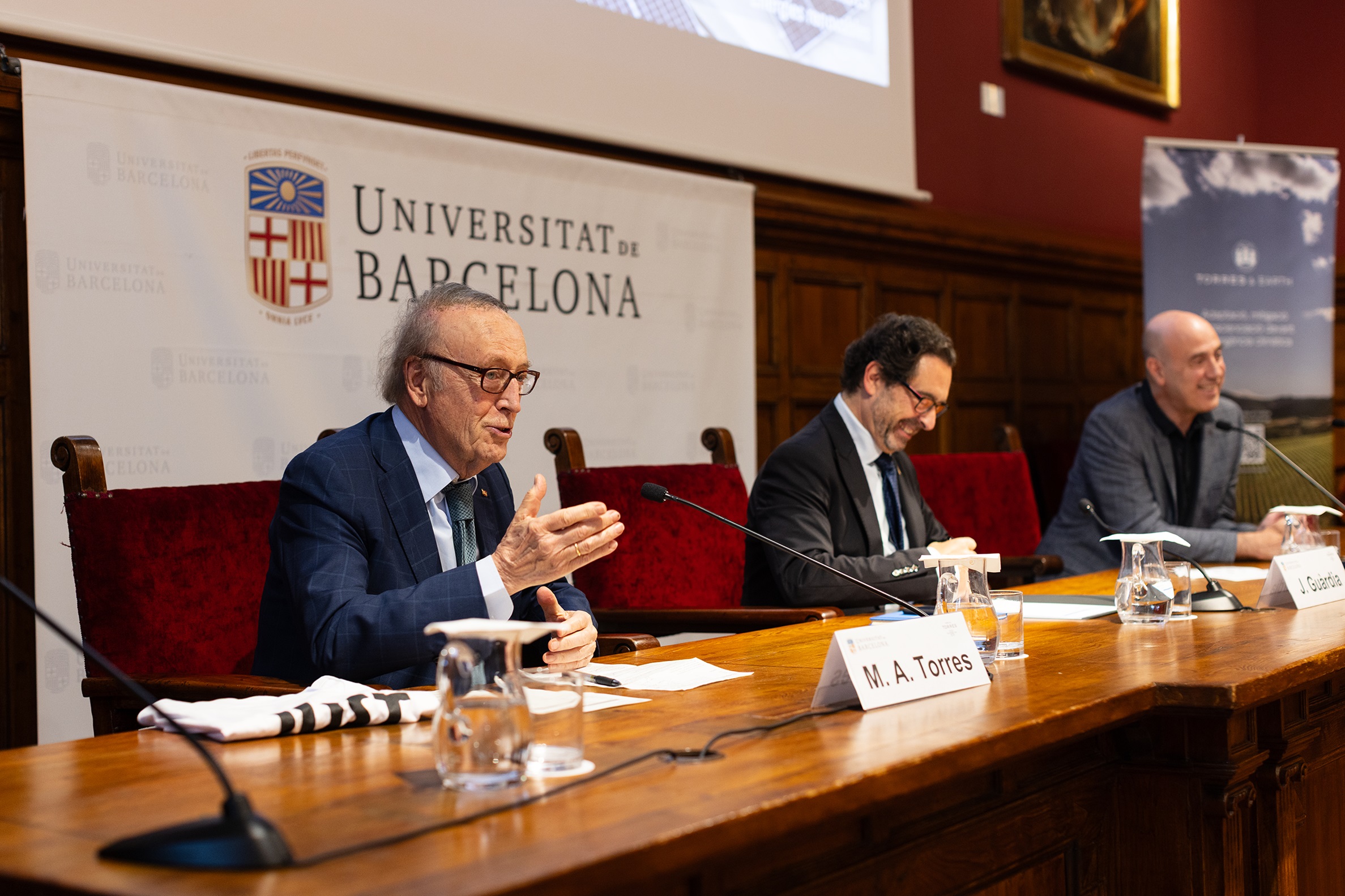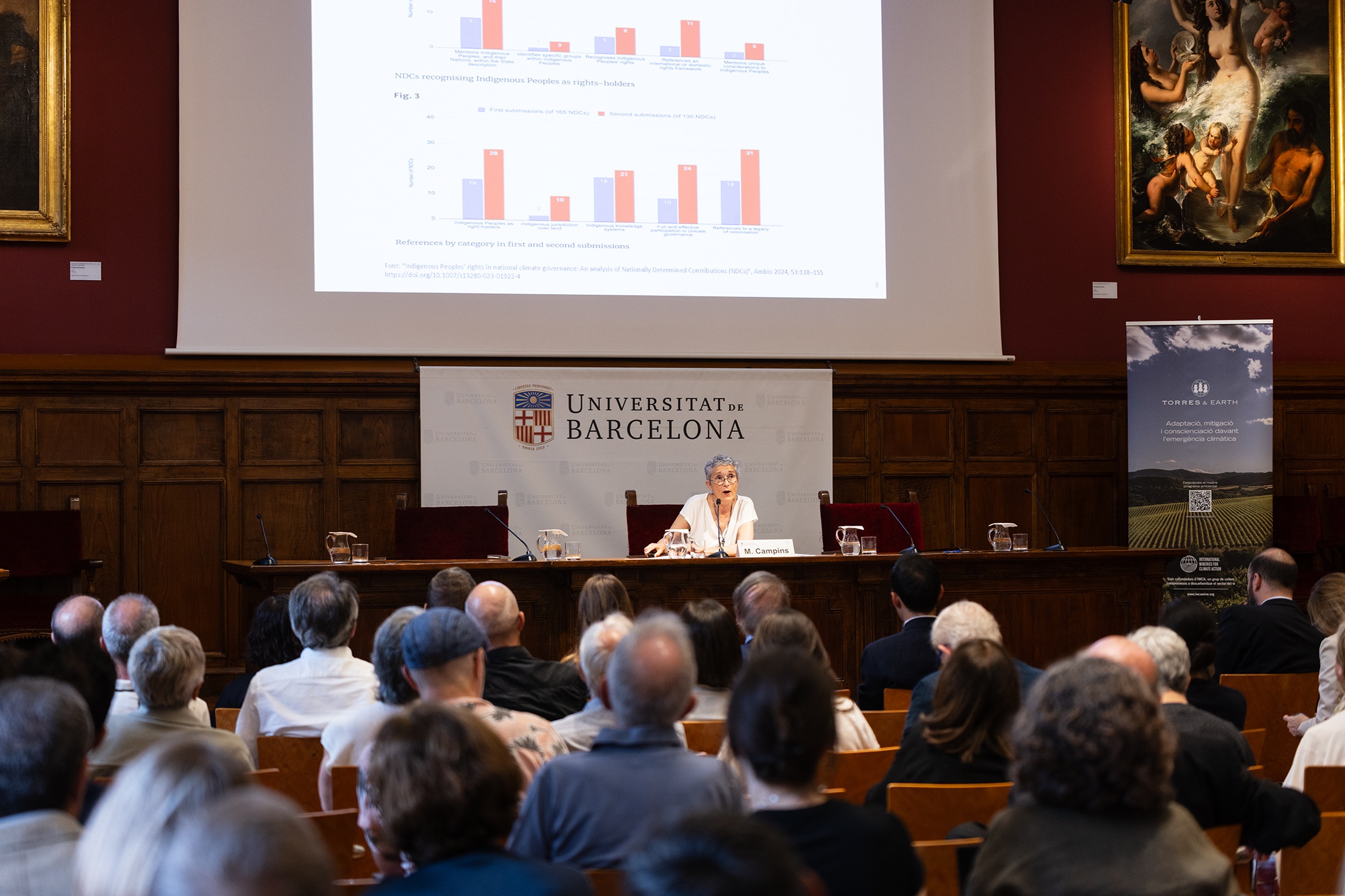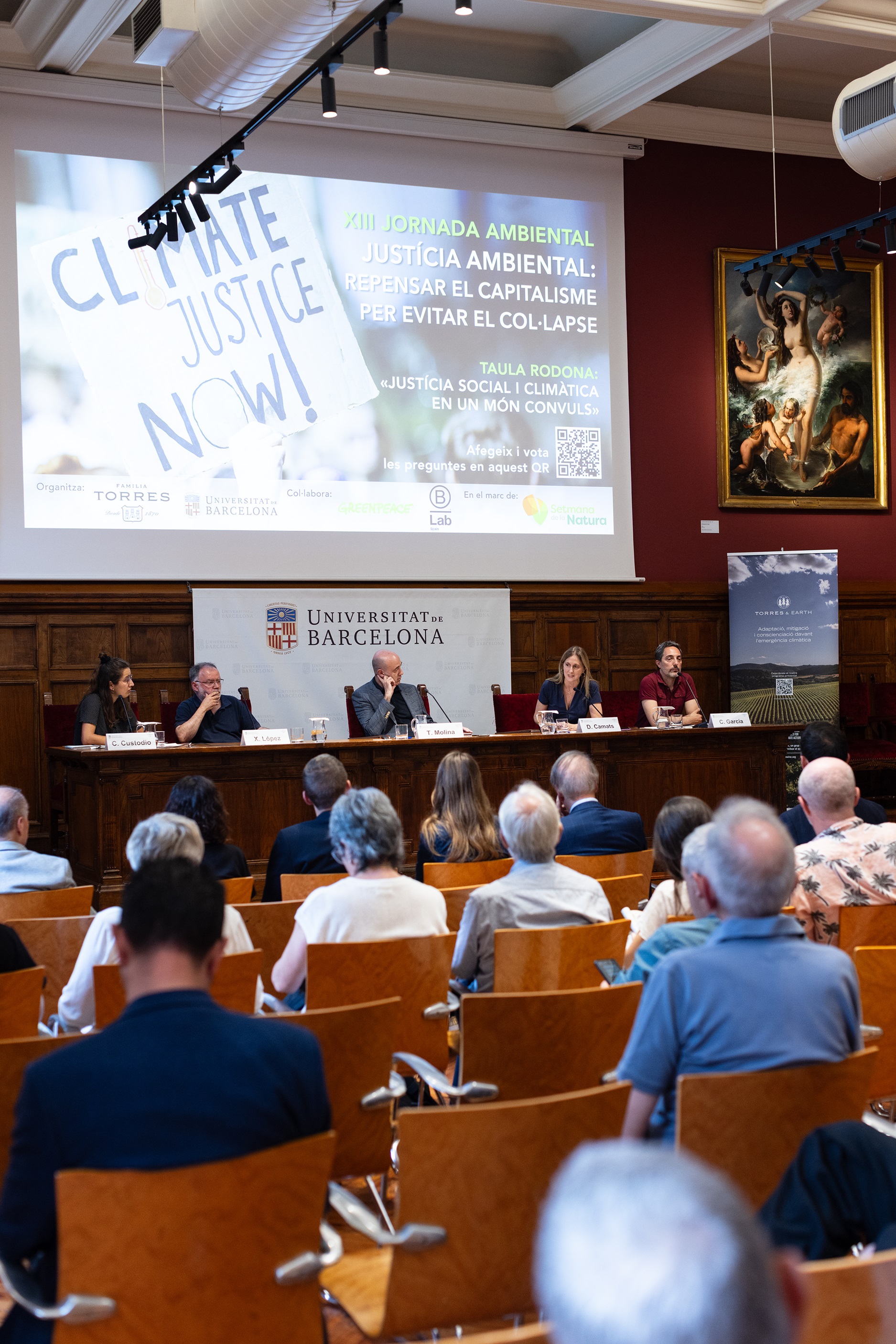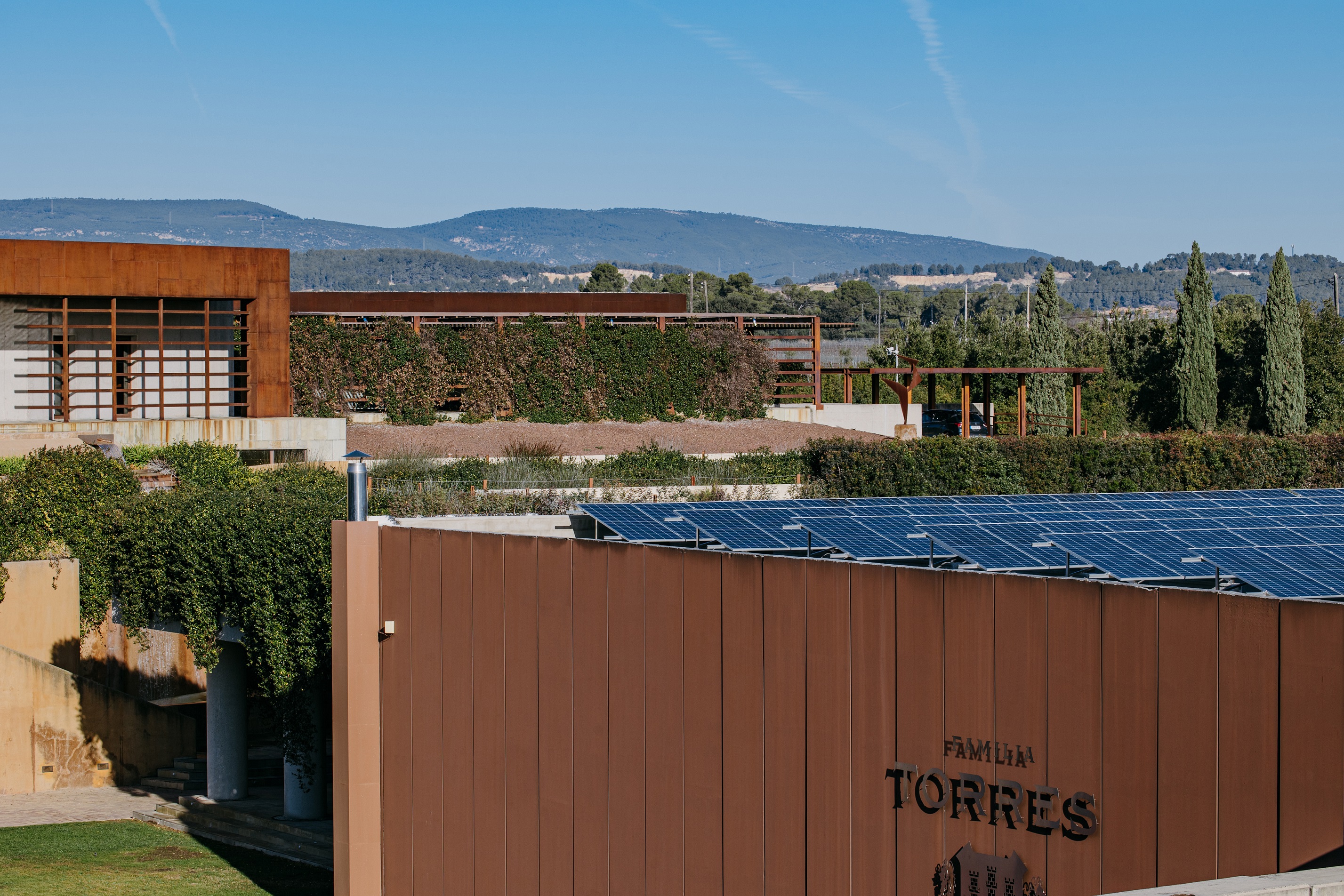The University of Barcelona (UB), in collaboration with Familia Torres and meteorologist Dr. Tomàs Molina, hosted the thirteenth edition of the Environmental Conference on June 4. This year’s event brought together leading experts and activists to debate environmental justice and advocate for a fundamental rethinking of capitalism as a means to avert ecological collapse. The conference explored urgent actions and innovative solutions, highlighting the tools available to address an unprecedented global crisis.
Academia and society in dialogue
The conference was inaugurated by UB Rector Joan Guàrdia, who emphasized the importance of maintaining scientific debate in an era where science is often questioned or denied, a situation that further exacerbates environmental challenges. Associate professor of Applied Physics at UB Dr. Tomàs Molina, who served as host, underscored the value of social debate, noting that academia must engage with society’s perspectives on concepts such as justice and the need to rethink capitalism.
Miguel A. Torres, President of Familia Torres, reiterated the necessity of “continuing the fight” against climate change, despite the difficulties posed by political inaction. Oil is "still subsidized", huge amounts are consumed every day, and plastics are ubiquitous. He expressed concern for future generations, questioning, “What world will we leave behind?” and acknowledged that more radical action should have been taken sooner.
Inequality and structural violence at the heart of the crisis
David Lizoain, Director General of Economic Analysis and Foresight for the Generalitat of Catalunya and author of the book Climate Crime, opened the presentations by addressing the structural nature of violence underpinning the climate crisis. He explained that the post-World War II order was built on fossil fuel-based development, resulting in persistent inequalities and instability—hunger, war, pestilence, and death, the so-called “Four Horsemen of the Apocalypse.” Lizoain highlighted that those most responsible for the crisis are often the least affected, while those who bear the least responsibility suffer the most severe consequences. He called for a “grand coalition” of citizens, companies, and states to build a sustainable order based on decarbonization.
Biologist and anthropologist Miguel Pajares added that there are currently 304 million migrants worldwide, not including internally displaced persons. While the overall number is not rising alarmingly, the proportion of refugees is increasing, now accounting for one in six migrants. Pajares pointed out that displacements caused by climate disasters are not officially recognized as forced migration, despite being a direct result of government inaction by high-emitting countries. He argued that these individuals should be considered refugees and protected accordingly, as the causes of their migration are clearly political.
The climate crisis from a legal perspective
Mar Campins, Professor of Public International Law at UB and specialist in community environmental law, introduced the concept of “climate justice.” She explained that it is grounded in distributive justice—fairly allocating burdens and benefits—and procedural justice—democratizing decision-making—while also respecting diverse cultures and perspectives. These principles, enshrined in the Paris Agreement, are essential for alleviating the impacts of climate change on those least responsible. However, Campins stressed the need to further develop these legal tools to ensure their effectiveness.
Francesco Sindico, an expert in international environmental law, delved deeper into the legal dimension. He warned that “techno-capitalism without rules” leads to collapse, but noted that courts can act against companies contributing to climate change. Sindico cited examples where emissions-intensive projects have been halted and highlighted the strategic use of litigation by civil society. While judicial intervention against government policies can be delicate, he argued it is necessary when authorities abuse their power. Ultimately, Sindico concluded that while the law can help curb the negative effects of capitalism and climate change, systemic change remains a broader social and political project, with the courts serving to “buy time.”
Rethinking the global economic model
Jordi Roca, Professor of Economics at UB and specialist in ecological economics, advocated for a paradigm shift in how wealth is measured, suggesting a move away from GDP towards indicators that reflect people’s living conditions and respect for the planet. Raimon Puigjaner, CEO of R4S and President of B Lab Spain, called for new business models that integrate sustainability as a core value, capable of driving innovation and generating new opportunities. He noted that while arguments about inequality and social cohesion are important, integrating sustainability risks and opportunities—aligned with consumer values and investor pressure—can be more effective in influencing economic agents.
Social and climate justice: a central element for the future
The XIII Environmental Conference concluded with a round table discussion on social and climate justice, featuring Clàudia Custodio (Observatory of Debt in Globalisation), Xavier López (UB Solidarity Foundation), Dolors Camats (Catalonia Europe Foundation), and Carlos García Paret (Greenpeace). Key points of consensus included the need to identify those responsible for the crisis to ensure compensation for the most affected, empower communities to manage their resources autonomously, ensure justice serves democratic governance to prevent inequality, and redirect environmentally harmful public subsidies towards sustainable uses.
Closing and impact
The event, attended by over a hundred participants and streamed live on UB’s YouTube channel, concluded with closing remarks from Vice-Rector Ernest Abadal, accompanied by Miguel A. Torres and Dr. Tomàs Molina. The XIII Environmental Conference reaffirmed the urgent need for collective action and systemic change to address the climate crisis, positioning the dialogue between academia, civil society, and the business sector as essential for building a sustainable future.





